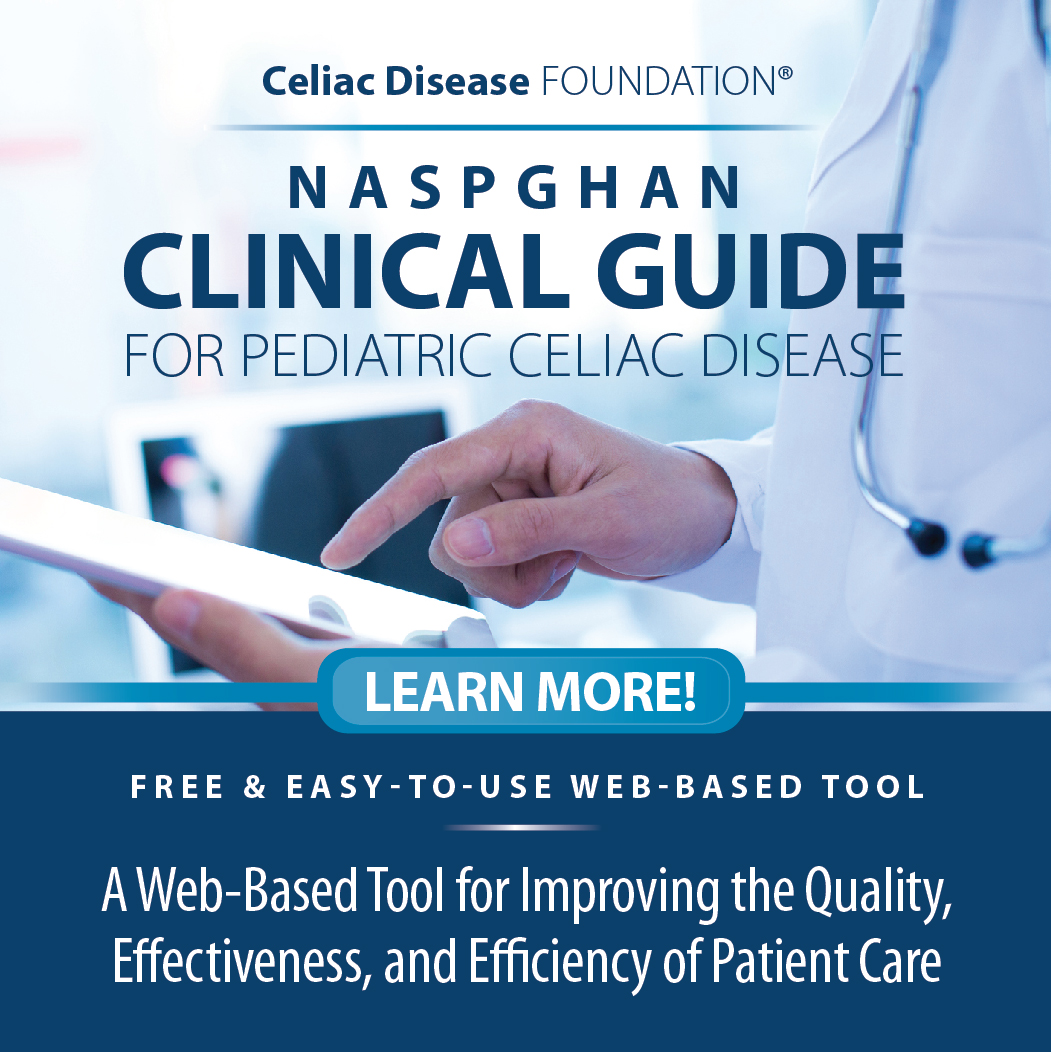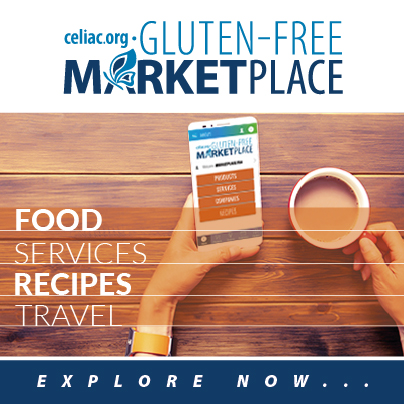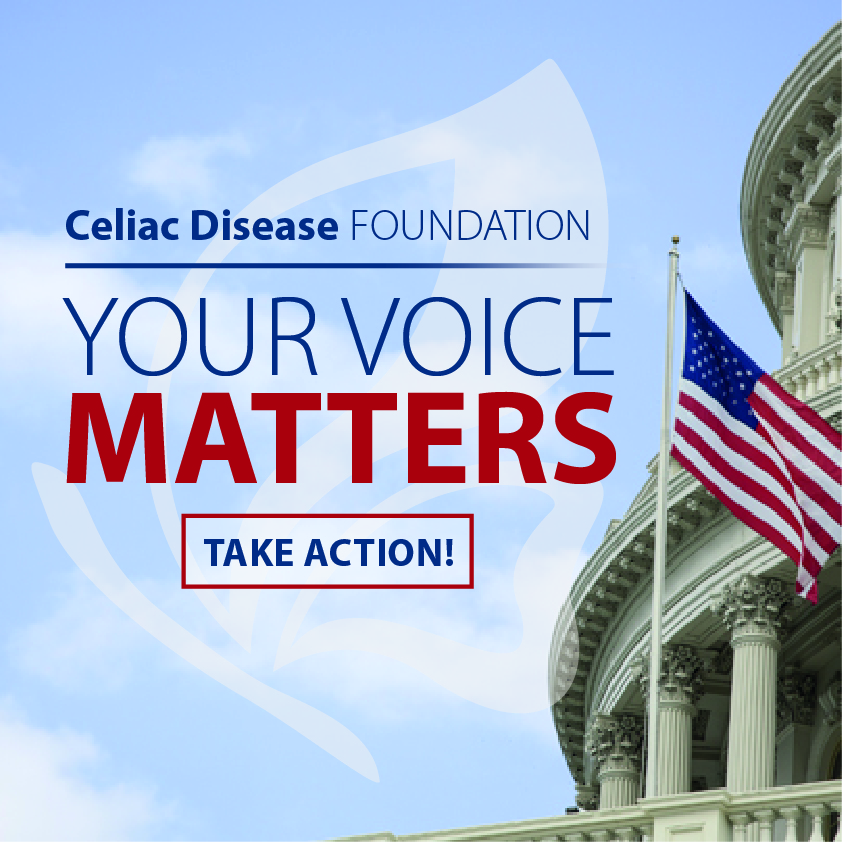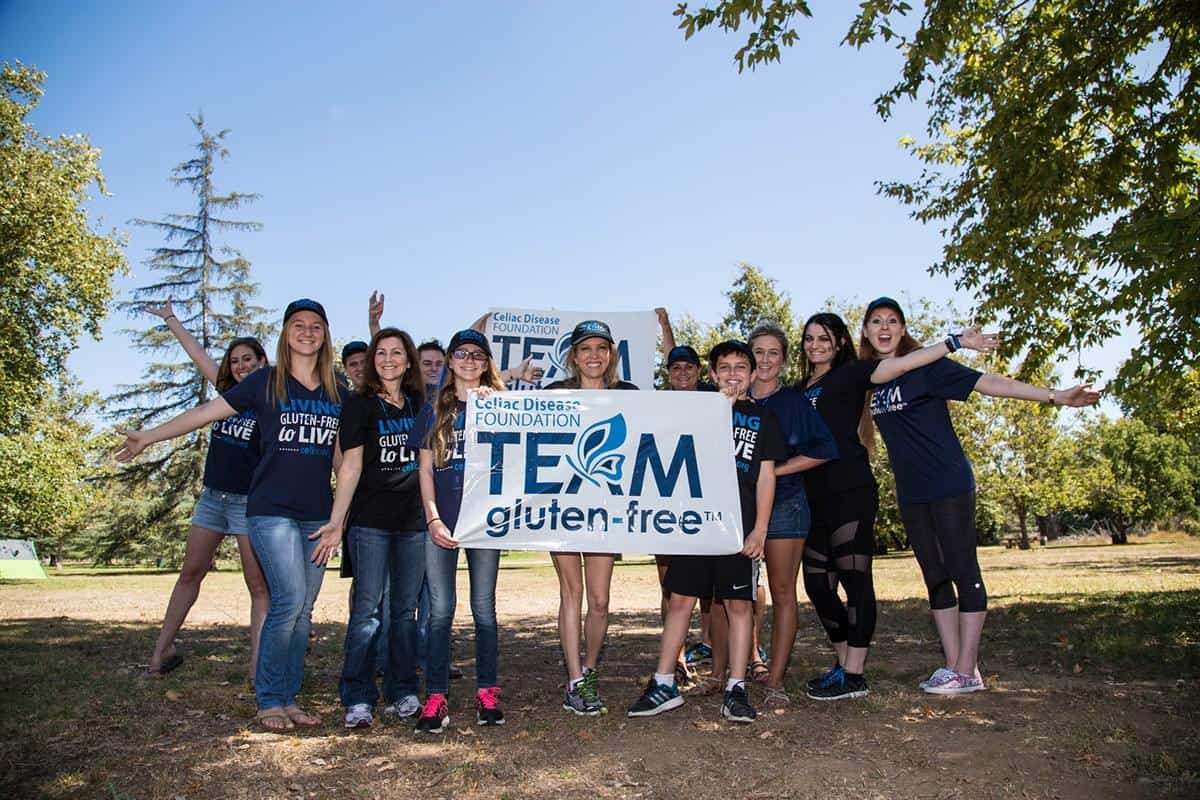2017 Year in Review
Each year, the world’s leading experts representing every aspect of celiac disease research, education, and advocacy gather at the International Celiac Disease Symposium (ICDS). As you know, there are no approved treatments for celiac disease beyond strict adherence to the gluten-free diet. And, as you know, it is estimated that approximately 30% of all celiac disease patients on the gluten-free diet still experience symptoms and/or continued intestinal villi damage.
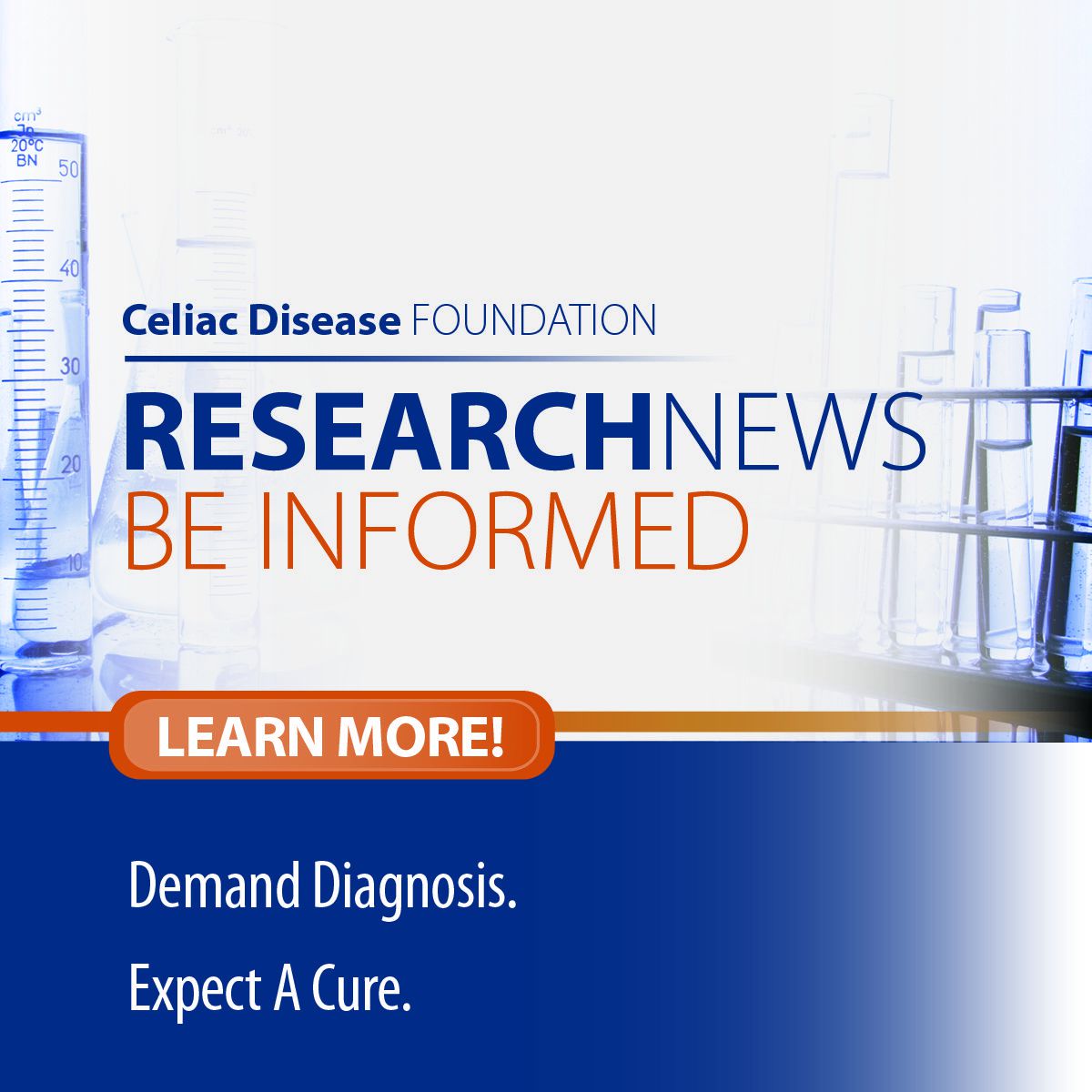
At the 2015 ICDS, a prominent biopharmaceutical researcher estimated that five proposed celiac disease treatments were somewhere in the drug development pipeline.
At the 2017 ICDS, that same researcher estimated that as many as 25 drugs were in the pipeline, albeit most are at the very beginning of the pipeline, a process that can take billions of dollars and five years or more to navigate to receive Food & Drug Administration (FDA) approval to bring to market.
The primary reason for this recent explosion in interest in developing alternative treatments to the gluten-free diet is that there is now proof that hundreds of thousands, if not millions, of celiac disease patients continue to struggle with the disease while on the diet.
The Celiac Disease Foundation (CDF) has been a leader in gathering this evidence and sharing it with researchers. In addition, CDF, taking a page from the successful work of patient advocacy organizations in the cancer space, launched the largest celiac disease patient registry in the world, known as iCureCeliac®.
The presence of the registry directly supports drug development by dramatically lowering the cost of research and development through access to vetted, quality data from a wide variety of patients, many of whom are biopsy-diagnosed.
Looking back, 2017 has been an incredible year for celiac disease research, education, and advocacy. CDF has been at the center of many of the most exciting developments. While there are still no approved treatments for celiac disease on the market, we are making dramatic progress. Please read on to learn more about what the generosity of our donors has enabled.
Research
The Celiac Disease Foundation gives voice to the largest community of celiac disease and non-celiac gluten/wheat sensitive patients and caregivers in the world.
Through research, education, and advocacy, the Foundation works to mitigate the injury, suffering, and expense caused by these conditions, including, and especially supporting, research for FDA-approved treatments and a cure.
Young Investigator Award
In 2015, the Celiac Disease Foundation worked with the North American Society for the Study of Celiac Disease (NASSCD) to offer a three-year, $150,000 award to support young investigator research in celiac disease. This Young Investigator Award focuses on finding cause and treatment for celiac disease sufferers.
This February, we announced the recipient of the first award. Dr. Matthew Shale of the Stanford University School of Medicine’s Institute for Immunity, Transplantation and Infection, seeks to understand more about the fundamental issue in the intestine: how the immune system knows when to react and when not to react.
The Young Investigator Award is part of the Foundation’s effort to facilitate the transition of future celiac disease specialists from medical school, to fellowship, to clinician-scientist. It is our hope that these strategic investments in promising scientists and their work, made possible through our collaboration with NASSCD, advance our understanding of this complex disease, and lead to the next breakthrough in celiac disease research.
Clinical Trial Finder
In April, the Foundation launched the Clinical Trial Finder, a tool designed to help people with celiac disease and non-celiac gluten/wheat sensitivity participate in medical research clinical trials. In addition to actively advancing the search for treatments and a cure, patients who choose to participate in clinical trials may themselves get some relief from celiac disease and non-celiac gluten/wheat sensitivity symptoms.
The Clinical Trial Finder provides an easy-to-access, search, and explore, disease-specific interface to search for available trials by different variables, including region and disease symptom. This platform brings a greater awareness of clinical trials to the celiac disease community, helping to accelerate much-needed and long-overdue medical breakthroughs.
Educating and empowering patients to play an active role in the research and treatment process has proven to be the most efficient path to the development of effective treatments and cures for disease.
2017 International Celiac Disease Symposium
Celiac disease research has gained tremendous momentum in recent years as groundbreaking research begins to be converted into treatments for celiac disease to improve patient quality of life. In September, the Celiac Disease Foundation presented two studies at the International Celiac Disease Symposium (ICDS) in New Delhi, India.
In our first study, the Foundation collaborated with researchers at Columbia University Celiac Disease Center on an iCureCeliac® study that sought to understand how depression modifies the association between gluten-free diet adherence and symptoms in celiac disease patients.
In the second study, iCureCeliac® was used to determine that diagnosis of one or more autoimmune diseases in addition to celiac disease is common, particularly in women and older adults. The Celiac Disease Foundation’s participation in ICDS is critical to furthering the mission of the Foundation, as well as advancing our understanding of celiac disease and non-celiac gluten/wheat sensitivity and its life-long impact on those affected.
iCureCeliac® Patient Registry
In 2016, the Celiac Disease Foundation launched its single most impactful initiative ever, iCureCeliac®, an online portal for patients, or their caregivers, to provide critical insights into life with celiac disease and non-celiac gluten/wheat sensitivity.
Anonymized questionnaire data, completed by iCureCeliac® participants under informed consent, are made available to researchers and governmental policy analysts to advance life-changing initiatives. Since its launch, 4,500 people have added their health data to iCureCeliac®.
This valuable data will help create better diagnostic tools and treatments for cross-contact and gluten consumption, governmental policy changes, and access to new and innovative clinical trials nationwide which may, one day, cure celiac disease. Even at this early stage, iCureCeliac® is a singular success. Already, the registry has been deployed in support of several clinical trials for celiac disease therapeutic development.
Education and Support
NASPGHAN Clinical Guide for Pediatric Celiac Disease Read more at
The only approved treatment for celiac disease is lifetime adherence to a strict, gluten-free diet. Early and accurate diagnosis remains critical in the effective treatment of celiac disease.
In an effort to increase the diagnosis rate of celiac disease in pediatric patients, in April, together with the North American Society for Pediatric Gastroenterology, Hepatology and Nutrition (NASPGHAN), CDF released the NASPGHAN Clinical Guide for Pediatric Celiac Disease.
This easy-to-use web-based tool assists healthcare professionals in the diagnosis and management of pediatric celiac disease patients, providing recommendations for appropriate care.
Celiac Disease Training Program for Internal Medicine and Subspecialty Residents
With approximately 80% of individuals in the United States with celiac disease undiagnosed, millions of people are needlessly suffering. Experts have noted that among the most efficient ways to close the diagnosis gap is to improve the training of primary care physicians who see patients with a wide array of celiac disease symptoms, but still fail to order the blood screen panel for celiac disease.
To this end, in February, 2017, CDF, joining with the University of Southern California (USC) Keck School of Medicine, and CDF Board member, Dr. Michael S. Karp, Chief of the Division of Geriatric, Hospital, Palliative and General Internal Medicine, with a grant from the Simon Family Foundation, conceived and launched a groundbreaking celiac disease training program for Internal Medicine and subspecialty residents. This model program trains young physicians in the recognition, screening, and treatment of celiac disease.
Gluten-Free Marketplace 2.0
The Celiac Disease Foundation is dedicated to providing our community with innovative tools and technologies. In 2017, more than six million people used the resources at celiac.org.
Originally launched in 2015, Eat! Gluten-Free (formerly the Gluten-Free Marketplace) is a one-stop destination showcasing products and services from companies that care about the gluten-free community, and have made a deep commitment to supporting the Foundation’s mission of diagnosis, treatment, and a cure for celiac disease.
In March, Eat! Gluten-Free 2.0 was released. New is the ability to find and “favorite” the best gluten-free recipes, filter and search recipes by category and course, access dietitian-developed gluten-free meal plans, find important nutrition information for every product and recipe, get the latest in gluten-free lifestyle news, and much more.
Eat! Gluten-Free 2.0 is available at here and as an app for iPhone and Android.
Collaboration with the Gluten Intolerance Group
In April, the Celiac Disease Foundation and the Gluten Intolerance Group (GIG) joined forces to improve the health and well-being of the celiac disease and gluten-free communities. In order to create the most comprehensive nonprofit source of research, education, advocacy, social networking, and support for the millions of people living with celiac disease and non-celiac gluten/wheat sensitivity, the Foundation transitioned the operation of its years-long support group program to GIG, and in exchange, GIG is helping to promote our iCureCeliac® patient registry. Thanks to this collaboration, CDF and GIG can together support our community while also advancing treatments and, eventually, a cure.
2017 National Conference & Gluten-Free EXPO
The Celiac Disease Foundation hosted its 12th annual National Conference & Gluten-Free EXPO in June in Pasadena, CA. More than 3,500 people – patients, family members, caregivers, healthcare professionals, researchers, biopharmaceutical and diagnostic company representatives, and gluten-free foodies attended the event.
The Conference featured the Patients as Partners Research Symposium where attendees were trained to become Patient Advocates. A special thanks to sponsor ImmusanT, and to Leslie Williams, Chief Executive Officer, and Dr. Robert Anderson, Chief Scientific Officer, for their participation as panelists.
The EXPO celebrated food options now available for people with celiac disease, non-celiac gluten/wheat sensitivity, and others who seek benefits from the gluten-free diet. The Celiac Disease Foundation thanks our exhibitors, expert speakers, volunteers, and especially the attendees for making this the biggest and best National Conference & Gluten-Free EXPO to date.
Advocacy
Healthcare Reform
As the leading disease advocacy organization for celiac disease, we are making our voice heard in governmental legislation and processes every year.
When the Affordable Care Act was repealed, the Celiac Disease Foundation joined in a large, coordinated effort with other disease advocacy organizations to empower our community to urge their Congressional leaders to retain common sense patient protections for those with chronic diseases during the healthcare debate.
Through our efforts, the tremendous support from our community, and the strength of disease advocacy organizations and individuals around the country, each proposed Affordable Care Act replacement bill was denied.
We are proud to continue fighting for equal access to healthcare for patients with chronic conditions.
Patient Advocacy Program
In 2015, the Celiac Disease Foundation received a two-year award from the Patient-Centered Outcomes Research Institute to develop a Patient Advocacy Program. Historically, medical research has not tapped the expertise of patients in the design and development of new treatments, often leading to disconnects between therapeutic outcomes and real patient needs.
The Patient Advocacy Program seeks to address this disconnect by creating a national network of informed patients who understand the medical research process and who can engage with both the research and the patient communities to facilitate patient-centered outcomes in celiac disease research.
In addition to a year-round online program, the Foundation held in-person Patient Advocacy Program workshops at our Patients as Partners Research Symposium in Pasadena, CA. and at the University of Chicago Celiac Disease Center’s Annual Celiac Education Day. CDF’s Patient Advocacy Program has now been accessed by more than 700 participants across the United States.
The session at the University of Chicago concludes PCORI funding support. Thanks to the generosity of our donors, the Foundation will continue to offer the Patient Advocacy Program online, and at the annual National Conference each spring in Los Angeles, CA.
Gluten in Medications
The Food & Drug Administration (FDA), on December 12, 2017, issued guidance to drug manufacturers to voluntarily label medications with a statement indicating that gluten-containing ingredients were not used to make the product, when such a statement is true. The Celiac Disease Foundation has been at the forefront of the fight to clearly label gluten in medications.
In 2012, Representative Tim Ryan (D-Ohio) introduced legislation that would apply gluten labeling requirements on all medications, both prescription and over-the-counter, which was strongly endorsed by CDF. In 2015, Representative Ryan reintroduced legislation with H.R. 3648: Gluten in Medicine Disclosure Act, with the Foundation securing co-sponsors for the act.
As the draft guidance recommends voluntary compliance, this is a notable but not definitive step to reduce uncertainty about the gluten content in medications for people with celiac disease and non-celiac gluten/wheat sensitivity, providing transparency and peace of mind. The Celiac Disease Foundation is pleased that our voices are being heard in the fight to improve patient quality of life.
Team Gluten-Free
2017 was a very successful year for Team Gluten-Free (TGF) with participants raising more than $125,000!
Team Gluten-Free is a community fundraising program that provides a simple way for athletes and non-athletes alike to raise awareness and funds for the Celiac Disease Foundation’s programs for research, education, and advocacy.
This year, TGF members from across the country hosted and participated in events, including golf tournaments, basketball tournaments, raffles, jewelry and bracelet sales, marathons, a Turkey Trot, and much more.
The Celiac Disease Foundation is proud of our TGF members for representing and empowering the gluten-free community, and we are deeply grateful for their hard work and dedication to drive diagnosis, treatment, and a cure for celiac disease.
Student Ambassador Program
The Student Ambassador Program helps children, teens, and young adults become role models for others with celiac disease and non-celiac gluten/wheat sensitivity while raising awareness in the community and educating their peers.
Student Ambassadors are our boots on the ground in schools across the country. This year, more than 100 Student Ambassadors raised awareness and educated peers about celiac disease by making presentations and showing videos to classmates, writing articles for schools or local newspapers, distributing brochures to peers and doctors’ offices, creating bulletin boards, and much more. The Celiac Disease Foundation is incredibly proud of our Student Ambassadors for their tremendous commitment and efforts.
Everything the Foundation does – every research grant, every diagnostic tool, every curriculum developed for healthcare providers, every public education program – is designed with one goal in mind: to end the needless suffering caused by celiac disease.
In 2017, especially in the growth of the iCureCeliac® patient registry and its emergence as a key tool in the global effort to bring celiac disease treatments through the drug pipeline and to patients, we have seen substantial progress toward our goal. If you or a loved one has celiac disease, then you are well aware that we are not there yet.
We must continue in 2018 and beyond to make smart investments in technology and people to help end the suffering. With your continued support, we will solve celiac disease together.
